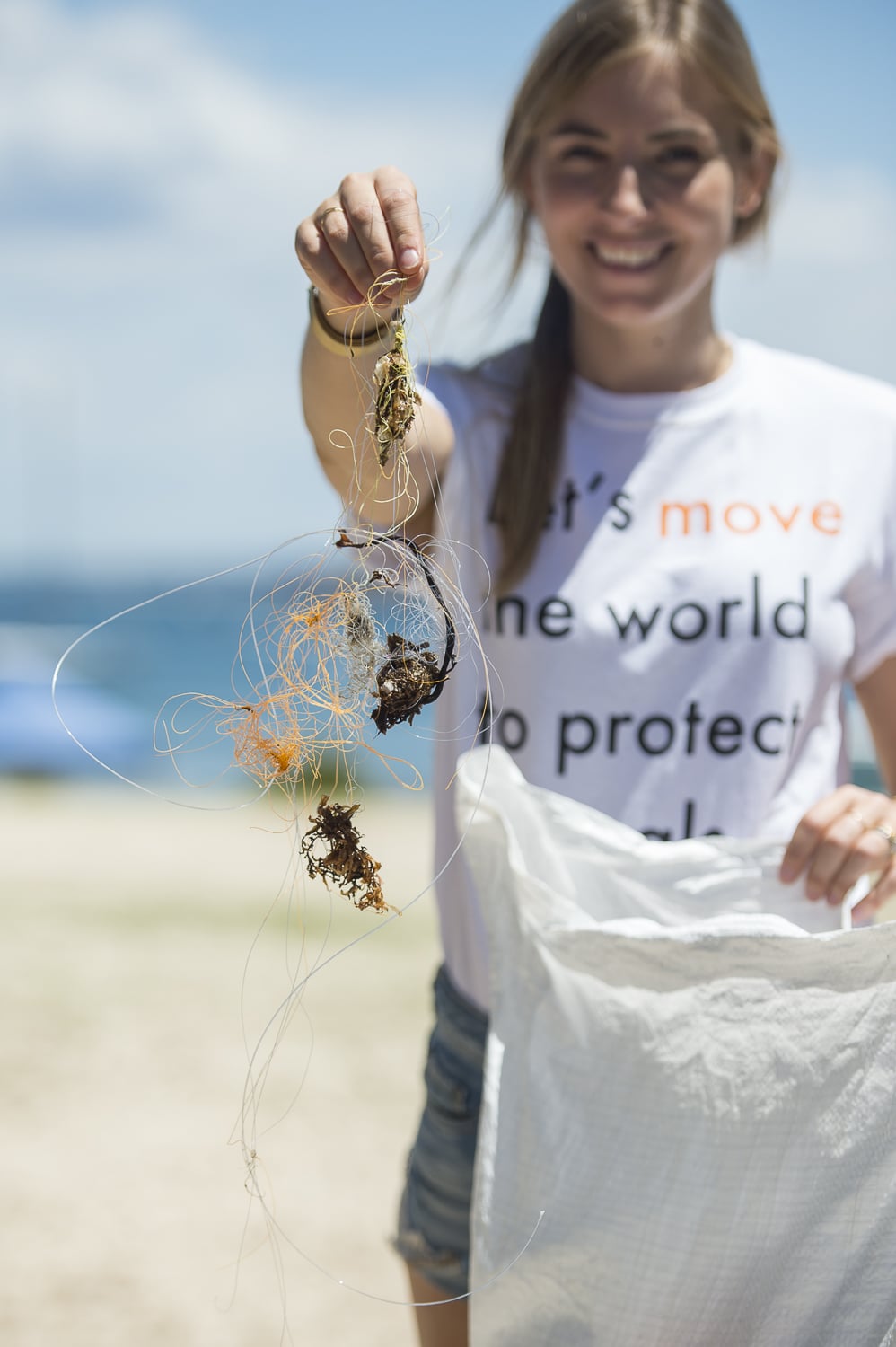For the past year, Ingrid Giskes has been leading the oceans work for World Animal Protection – tackling the problem of lost, abandoned and discarded fishing gear. Known as ghost gear, a staggering one tonne enters our oceans every minute – trapping, injuring and killing hundreds of thousands of marine animals.
Originally from Belgium, Ingrid now lives on Sydney’s northern beaches and is a keen swimmer, sailor and snorkeler – the ocean and the life within it, inspires her every day.
Previously she worked for Amnesty International on refugee issues after a studying and working in Hangzhou, China.
The problem
While fishing gear is valuable, often it is accidentally lost in severe weather conditions. In many countries isn’t access to disposal facilities, leaving fishers with less options in terms of responsible gear management. When part of illegal, unreported and unregulated fishing practices, gear might be intentionally discarded.
Australia’s Gulf of Carpentaria is home to six of the world’s seven sea turtle species and has some of the largest sea turtle nesting areas in the Indo-Pacific region.
It is also a ghost gear hot spot with reports of three tonnes of netting washing up annually for every kilometre of coastline.
These nets likely travel on currents from countries to the north, such as Indonesia, Thailand, South Korea, Japan and India.
The solution
In addition to her role with World Animal Protection, Ingrid is also chair of the Global Ghost Gear Initiative (GGGI) – a global alliance of industry, government, academia and NGOs working to tackle the problem worldwide.
In her role with World Animal Protection and through the Global Ghost Gear Initiative, Ingrid is working on sustainable solutions to tackle the problem of ghost fishing gear including the three Rs;
- Reducing the amount of ghost fishing gear entering our oceans
- Removing gear that is already there
- Re-using fishing gear into other products

A typical day
Given Ingrid is based in Australia, her days can be long and she often has to travel to project sites and conferences. An average day could involve talking to governments to make sure their policies include action on ghost fishing gear, working with fishing industry stakeholders on their corporate sustainability practices, spreading awareness of the issue at strategic conferences around the world, review solution project proposals or meeting generous supporters.
The best parts of her work include watching cute videos of seals released into the ocean after vet care for ghost gear injuries and receiving programme updates from around the world like the work to protect the vaquita porpoise in Mexico.
Living by the beach, Ingrid tries to see it every day – swimming, sailing or just walking along it reminds her she is fighting for healthy, clean oceans.
How can people help?
While ghost gear is not something many people encounter day to day, you can help reduce other types of marine litter that harms animals by taking part in beach cleans, switching to reusable shopping bags and buying products like socks, swimwear and skateboards made from recycled ghost gear and supporting the work of World Animal Protection.
You can read more about Ingrid’s work here.


